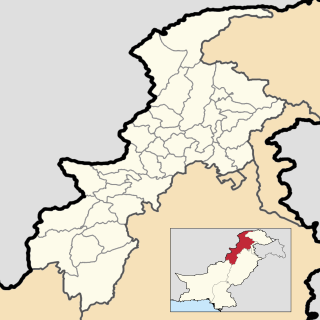 W
WAnderson Bridge massacre refers to the massacre of Hindu passengers on the Anderson Bridge on 12 February 1950.
 W
WThe Babrra incident was a mass shooting on 12 August 1948 in the North-West Frontier Province (NWFP) of Pakistan, in which 500 to 570 supporters of the Khudai Khidmatgar movement were killed and about 1050 to 1500 were injured. It happened on Babrra ground in Charsadda District on the order of the chief minister of the NWFP, Abdul Qayyum Khan Kashmiri.
 W
WThe Insurgency in Balochistan is a low-intensity insurgency waged by Baloch nationalists against the governments of Pakistan and Iran in the Balochistan region, which covers the Balochistan Province in southwestern Pakistan, Sistan and Baluchestan Province in southeastern Iran, and the Balochistan region of southern Afghanistan. Rich in natural resources like natural gas, oil, coal, copper, sulphur, fluoride and gold, this is the largest and least developed province in Pakistan. Armed groups demand greater control of the province's natural resources and political autonomy. Baloch separatists have attacked civilians from other ethnicities throughout the province. In the 2010s, attacks against the Shi'a community by sectarian groups—though not always directly related to the political struggle—have risen, contributing to tensions in Balochistan.
 W
WThe 1950 riots refers to the massacre of Bengali Hindus by the Bengali Muslims, the Pakistani police and the para-military accompanied by arson.
 W
WThe Indo-Pakistani War of 1947–1948, sometimes known as the First Kashmir War, was fought between India and Pakistan over the princely state of Jammu and Kashmir from 1947 to 1948. It was the first of four Indo-Pakistan Wars fought between the two newly independent nations. Pakistan precipitated the war a few weeks after independence by launching tribal lashkar (militia) from Waziristan, in an effort to capture Kashmir, the future of which hung in the balance. The inconclusive result of the war still affects the geopolitics of both countries.
 W
WThe Jinnah–Mountbatten Talks were bilateral talks held in Lahore between the Governor-Generals Muhammad Ali Jinnah and Louis Mountbatten of Pakistan and India, to address the Kashmir dispute. The talks were held on 1 November 1947, five days after India dispatched its troops to defend Kashmir against a Pakistan-backed tribal invasion. In the talks, Mountbatten presented India's offer to hold an impartial plebiscite under the United Nations auspices to decide the accession of Kashmir. Jinnah effectively rejected the offer.
 W
WMuladi massacres were a series of massacres of unarmed Hindu and Christian men and elderly women in the river port of Muladi between 17 and 20 February 1950 by armed mobs with the active connivance of the Ansars and the police.
 W
WThe Objectives Resolution was adopted by the Constituent Assembly of Pakistan on March 12, 1949. Prime Minister, Liaquat Ali Khan, had presented it in the assembly on March 7, 1949. Out of 75 members of the assembly, 21 voted for it. All the amendments proposed by minority members were rejected. Consequently, all ten of them voted against it.
 W
WThe Raisman Program, was a series of economic reforms programs enacted and established by Pakistan in 1951. Philosophical understanding of the program emerged in 1947 to provide economic distribution of total revenue, at parallel and perpendicular level, in the country. The program was announced by Prime Minister Liaquat Ali Khan in 1947, as part of his new economic policy to curbed the political discrepancies and economic preference. The civil servant, Sir Jeremy Raisman, in Prime Minister Ali Khan's government presented his recommendation in 1947; therefore the program was named after Raisman.
 W
WSitakunda massacre refers to the massacre of Hindu pilgrims on 15 February 1950. The Hindu pilgrims from all over East Bengal, Tripura and Assam were on their way to Sitakunda on the occasion of Maha Shivaratri at the Chandranath temple. The pilgrims were attacked by the Ansars and armed Muslim mobs and massacred at the Sitakunda railway station.